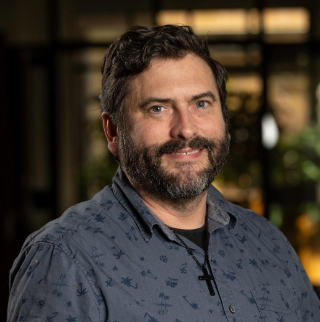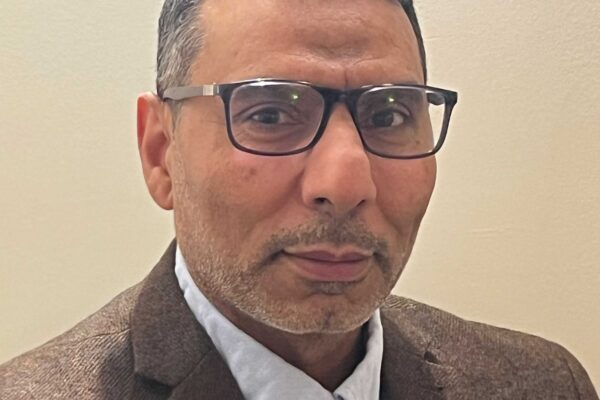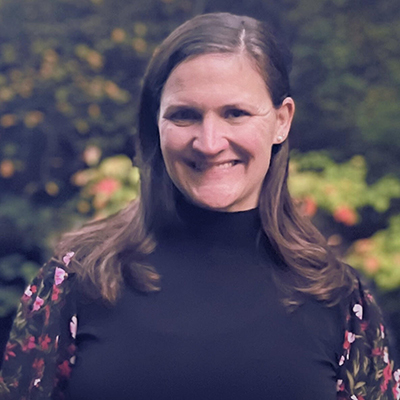 Teacher, Instructional Coach, Learning Designer, Researcher… all of these words describe this month’s Featured Educator, Colleen Worrell. Her humble beginnings in education reach back to 1998, when she joined Hingham High School as a Social Studies and American Studies teacher. Her journey in education continued to expand as Colleen drew on her teaching experience and doctoral training to lecture at the college level, as well as manage professional development and grants for Virtual High School. Colleen’s commitment to leading change in K12 public schools compelled her to join Hopkinton High School as a technology integration coordinator where she relied on coaching to support teachers as the school implemented its 1:1 laptop program. No stranger to technology in education, Worrell’s experience in digital learning started back in 2007 as a part-time lecturer at Tufts University. “Tufts had a big push toward technology integration and their Education program was exploring blended learning, so that gave me a great foundation,” she explained. Her work at Virtual High School helped to build on her experience in leading professional learning and curriculum design with in-service teachers. “I was able to dive into this more deeply when I worked at Virtual High School, where I eventually managed teacher professional development.” Worrell credits these experiences as foundational to her work with educators in a coaching role. “Teachers are experts — both in content and pedagogy — so it’s important to recognize the tech integrator’s role as a partnership in the change process,” stated Worrell.
Teacher, Instructional Coach, Learning Designer, Researcher… all of these words describe this month’s Featured Educator, Colleen Worrell. Her humble beginnings in education reach back to 1998, when she joined Hingham High School as a Social Studies and American Studies teacher. Her journey in education continued to expand as Colleen drew on her teaching experience and doctoral training to lecture at the college level, as well as manage professional development and grants for Virtual High School. Colleen’s commitment to leading change in K12 public schools compelled her to join Hopkinton High School as a technology integration coordinator where she relied on coaching to support teachers as the school implemented its 1:1 laptop program. No stranger to technology in education, Worrell’s experience in digital learning started back in 2007 as a part-time lecturer at Tufts University. “Tufts had a big push toward technology integration and their Education program was exploring blended learning, so that gave me a great foundation,” she explained. Her work at Virtual High School helped to build on her experience in leading professional learning and curriculum design with in-service teachers. “I was able to dive into this more deeply when I worked at Virtual High School, where I eventually managed teacher professional development.” Worrell credits these experiences as foundational to her work with educators in a coaching role. “Teachers are experts — both in content and pedagogy — so it’s important to recognize the tech integrator’s role as a partnership in the change process,” stated Worrell.
Reflecting on the evolution of educational technology, Worrell mentioned her experience at Tufts and her work with a cohort of teachers who were implementing blended learning. “At Tufts we were taught how to effectively design learning in an LMS, but as I shifted back to work with K12 schools, too often it was more about tech tools and using devices, rather than about pedagogy and learning goals. Now, almost 10 years later, blended learning is simply how most of us teach, and the focus is more on purposeful design and integration within the specific context of each classroom to achieve student learning goals,” noted Colleen, who believes in the power of modeling good practice so students can become expert learners.
Designing Learning Experiences
In speaking with her, it is clear that Colleen is a “people and pedagogy person” who is thoughtful about teaching and learning, not just technology tools. Over time she found that she wanted to focus more teaching and learning, as well as to become more involved in school leadership. This led her to take a position as Director of the Center for Innovation in Teaching and Learning at St. Mark’s School in Southborough, where Colleen’s primary role is to support and coach faculty — both through collaborative programming and individualized professional learning. “The Center is all about creating the best learning environment for both faculty and students at St. Mark’s. We want to attract and retain the best teachers for our students, and to do that we need to know, grow, and celebrate each educator.” Worrell, along with her two assistant directors, have the opportunity to re-engage teachers with new challenges and opportunities, while also motivating them to develop new layers of expertise in service of reaching all learners. “Today, teachers are called on to be designers of learning — but most of us have not really been trained to do this, so a culture of continuous learning is key” she said. Culture and relationship-building are also important aspects of Colleen’s work in schools. Worrell believes that teacher leaders can help to foster a culture of innovation through coaching and supportive partnerships. Such innovation may involve technology and new pedagogies, as well as connections to the community and authentic, real-world experiences to provide deeper learning opportunities for students.
Colleen believes that we need to design for effective student learning, drawing on research while also being responsive to our particular school context and community as we do so. “Student engagement and motivation is key, but so are setting clear learning goals and having high quality curriculum. Technology is an essential tool in all of this, and I don’t think that most of us could teach without it. But the goal is always impactful, effective learning for students.” Schools, she stated, should be true “learning organizations” where everyone works to get better for kids every day.
Research-Based Learning Design
Colleen stresses the importance of research and effective learning models. “I do a lot of reading on both student learning and effective professional development. There is a clear body of research about what works in education,” she said, citing the work of John Hattie on Visible Learning, as well as the What Works Clearinghouse. “This is should inform our practice and our curricula.”
Research is also important when it comes to teacher professional learning: “It needs to be personalized, job-embedded, and relevant to the work teachers do with students. That’s why I am a strong advocate for coaching, which is about partnering with educators on their teaching and learning goals as well as on their individual professional growth,” she explained. According to Colleen, coaching honors the talent and expertise of each teacher, while also supporting and challenging them as they engage in reflective and deliberate practice to meet school goals and to grow professionally. Support of her teachers’ professional development also extends into the world of social media (you can follow her on Twitter @cdworrell) with the creation of the #smlearns Twitter hashtag for St. Mark’s faculty and with her connection to #leadlapmass.
Even a quick conversation with Colleen makes clear that she is driven by the “why” of school and learning. She pointed to research by Lee Jenkins, Gallup, and Met Life that all show a sharp decline in how much students enjoy school by the time they reach high school, and in how fulfilled and engaged teachers feel in their work. “My mission is to turn those trends around so more people love school and see it as both purposeful and engaging — whether they are students or staff.”
Contributing to the Larger Whole
Worrell extends this mission beyond her own school as a member of MassCUE’s Blended Learning SIG. This involved group of educators promotes digital and personalized learning in Massachusetts by connecting educators with the people, organizations, resources, and opportunities needed to lead high-quality blended learning initiatives in schools around Massachusetts. “I feel fortunate to stay in touch with friends and colleagues outside of my own school. I have an amazing professional learning network,” said Colleen. As a key contributor to the group, she has brought fresh ideas to the table, and has also learned from others in the SIG, allowing her to bring innovative practices back to St. Mark’s. “Ultimately, I want everyone to be their best selves, love learning, and contribute to making a better world.” Indeed, words to live by. Congratulations to Colleen on a job well done!
Colleen Worrell is the Director of the Center for Innovation in Teaching & Learning and a social justice teacher at St. Mark’s School in Southborough, Massachusetts. Follow her on Twitter @cdworrell
 Print this post
Print this post



